News home
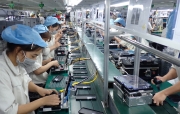
Theoreticaland practical framework of socialism model and path to socialism in Vietnam
(PTOJ) - The success of 35 years of renovation first belongs to the Vietnamese people under the leadership of the Communist Party, based on our steadfastness and creative application of the revolutionary path that Ho Chi Minh and the nation have chosen, that is, the path to socialism. However, there are conflicting opinions about the model and development path of the country, including opinions demanding a review of the scientific and objective background of the chosen model and path to socialism in our country. This article, from the analysis and evaluation of theoretical and practical framework, asserts that the choice of the path to socialism in Vietnam is objective and scientific.
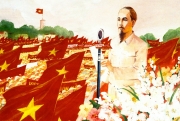
President Ho Chi Minh’s dedication to the establishment of a new-type State in Vietnam
(PTOJ) - The establishment of a new-type State after the 1945 August Revolution was the direct achievement of Vietnamese people’s long and heroic revolutionary struggle under the leadership of the Party. Attached to that is the great dedication of President Ho Chi Minh - the “Great Architect” of the new-type State in Vietnam. The article focuses on explaining and clarifying Ho Chi Minh’s great dedication on three basic aspects: The first person to seek and select a new-type State model in Vietnam; the most active person in the political, ideological and organizational preparation for the establishment of a legal, constitutional State in Vietnam; the person laying the foundation of a socialist law-ruled State of the people, by the people and for the people in Vietnam.
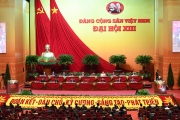
Strategic breakthroughs in the Draft Documents submitted to the 13th National Party Congress
(LLCT) - Based on the reality of Vietnam’s development over the past 35 years of renovation, the Draft Documents submitted to the 13th National Party Congress affirm three strategic breakthroughs on institution, human resources and infrastructure. The article focuses on analyzing the scientific, practical and purposive aspects of the above-mentioned breakthroughs.
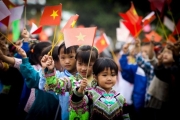
Vietnam’s application of the human rights-based approach to development-policy planning
(LLCT) - The principle of policy process in general and policy development in particular places humans at the center of the policy making and implementation process. Access to human rights in policymaking is also a very important part of the institutionalization of international commitments that countries pursue. The article focuses on clarifying Vietnam’s application of the human rights-based approach to policy making and development over the past years.
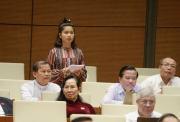
Women’s participation in politics in Vietnam: Achievements, challenges and some solutions in the new period
(LLCT) - Over the past 10 years, the quantity and quality of female cadres participating in leadership and management have increased. The percentage of women participating in the Politburo, the Party Central Committee has increased over the last three tenures, while the percentage of women in the National Assembly has started to rise as well. However, in some areas, the increased proportion of women’s leadership is not stable. This article points out some basic causes of this limitation: awareness of the women’s role and the work on female cadres; implementation of the policy on female cadres; the planning, training, retraining and employment of female cadres and difficulties directly related to them. Then the article proposes a number of solutions to promote women’s political leadership in the new period.
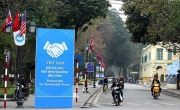
Promoting cultural soft power for sustainable development in Vietnam today
(LLCT) - Culture is the main source of a nation’s soft power. To transform the potential source into true soft power, it is required for each nation to go through a process with specific mechanisms to build trust, and influence other cultures. Vietnam is a country with a rich and diverse culture which has been formed through thousands of years of national construction and defense, with a massive combination of tangible, intangible, and natural heritages honored by UNESCO, etc. which are favorable factors for Vietnam to promote cultural soft power and enhance the country’s position in integration and development.
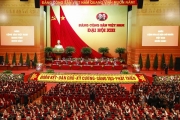
Leadership vision and strategic thinking at the new quest
(LLCT) - : Vision and strategic thinking are important and decisive qualities of a leader. Forming a vision and training strategic thinking is one of the leaders' tasks in order to meet the increasing requirements of national development in reality. The article focuses on clarifying the vision and strategic thinking needed for leaders nowadays.
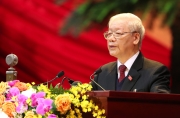
Some theoretical and practical issues on socialism and path towards socialism in Vietnam
(LLCT) - On the occasion of the 131st birthday of President Ho Chi Minh (May 19) and the elections of deputies to the 15th National Assembly and all-level People's Councils 2021-2026 (May 23), Professor, Dr Nguyen Phu Trong, General Secretary of the Communist Party of Vietnam (CPV) Central Committee, has written an article titled “Some theoretical and practical issues on socialism and the path towards socialism in Vietnam.” Here are some excerpts of the article:
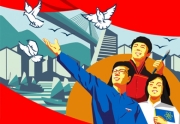
Intellectuals mobilization of the Party: Achievements and posing problems
(LLCT) - Inheriting the cultural tradition of the nation, applying the Marxist-Leninist view on intellectuals, right from its establishment, the Communist Party of Vietnam (CPV) has advocated the uniting and gathering of intellectual forces in the great bloc of national unity to serve the revolutionary cause. During the national renewal, the Party’s intellectual mobilization work had many innovations. As a result, the contingent of intellectuals is growing stronger, achieving many achievements in the fields of science and art, making important contributions to the national construction and development. In the context of international integration and the current Industrial Revolution 4.0, the mobilization and promotion of the role of the intellectuals have raised new and urgent requirements.
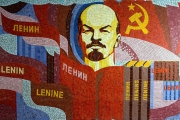
V.I.Lenin's thought on the class-nationality relationship and the application by the Vietnamese Communist Party
(LLCT) - The sustainable value in V.I.Lenin’s thought when dealing with the class-nationality relationship emphasizes the national problem in any era is always perceived and resolved on the stance and point of view of a certain class. This is the theoretical basis and methodology for determining the strategies of the Party and our people on the issue of class and ethnicity on the basis of both ensuring unity and meeting the difference between the interests of the class, nation and humanity on the basis of the nation's traditional patriotism and compassion.
Journal Archives
Journal Archives
Media
Photo Gallery
Contact us

 News home
News home


